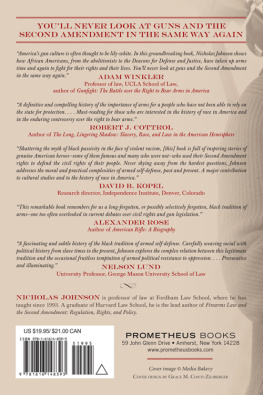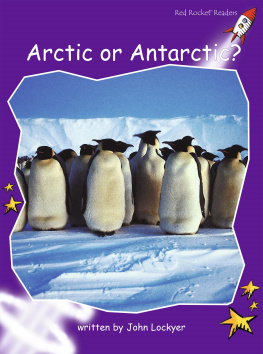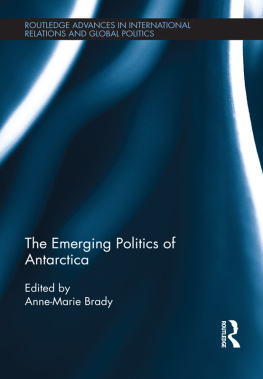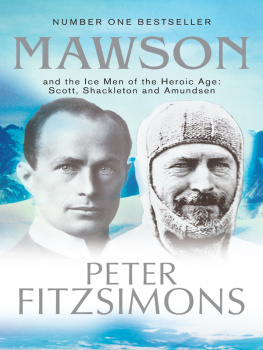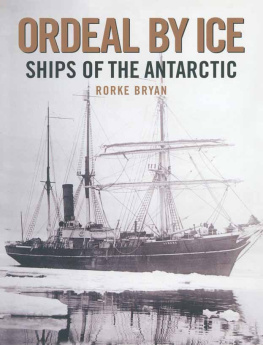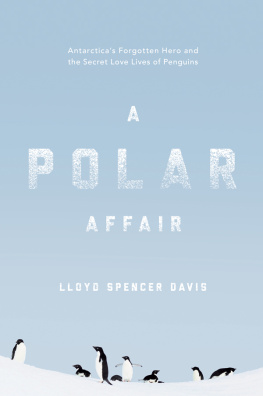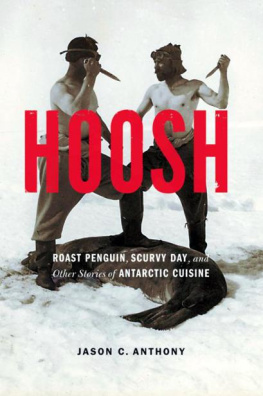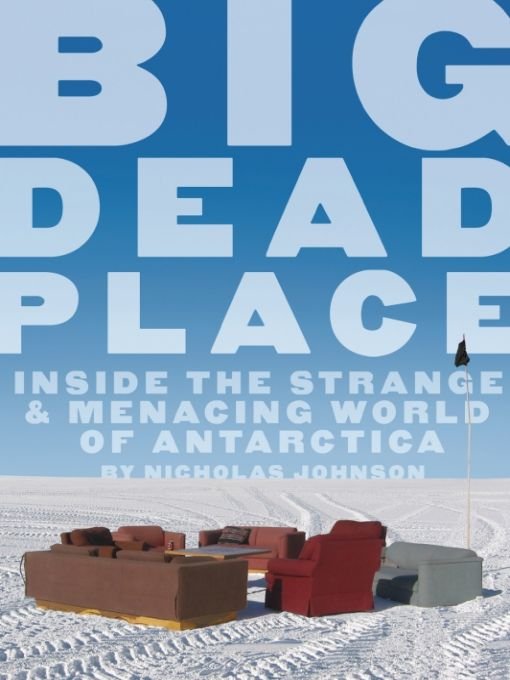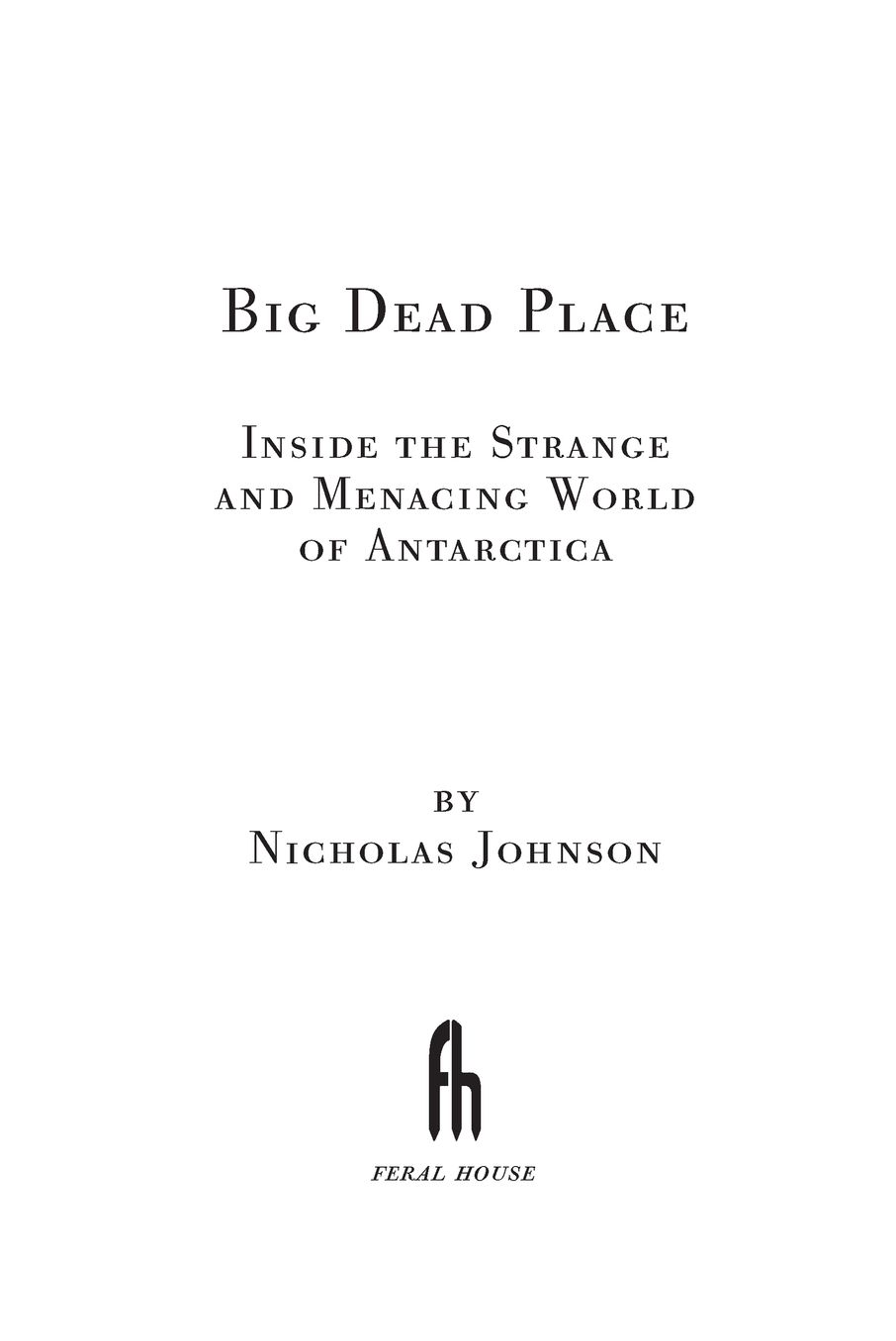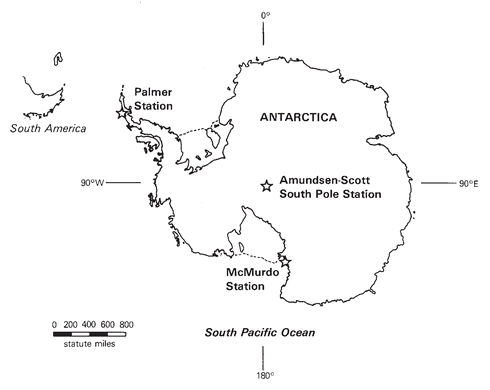Table of Contents
FOR MOM
AUTHORS NOTE
Though this book is non-fiction, most of the dialogue herein is reconstructed from notes I made at the end of the workday, with the exception of recorded dialogue, which is inset.
Because the United States Antarctic Program is a very small world, I have changed the names of most of those who work in The Program, unless they have given permission, or unless their positions have already brought them media attention in other instances.
In my menial position as an Antarctic garbageman, I was exposed to a wide array of unusual official documents that had been discarded in the White Paper category. My deep research in this area (sometimes to the bottom of the bin) would not have been possible without the conscientious recycling program of the National Science Foundation, for which I am grateful.
Map Courtesy of National Science Foundation
FOREWORD
by Eirik Snneland
MY FIRST MEETING with McMurdo was the smell of diesel. The same that disturbed our noses when over a month earlier Rolf Bae and I had skied into the U.S. South Pole base. The clean and cold air of Antarcticas wilderness had reset our senses. Approaching McMurdo Station, we could smell humans as far as 20 kilometres outside the heart of the largest infrastructure on this frozen continent.
I looked at the GPS Monday 5th February 01.00 a.m. Behind us lies a ski trek of close to 3800 kilometres, from Gjelsvikfjella in Queen Maud Land, via South Pole to McMurdo Station. 105 days on skies, 11 months as the first winter crew at the Norwegian Research station, Troll. Research, station upgrades, a years worth of maintenance, and the world longest ski trek had been a success. It almost seemed like our minds and bodies didnt know how to reactall this would soon be over. A strong feeling of humility is the best description I can give today. Feeling fragile but at the same time strong.
Near McMurdo, the first building we arrived at turned out to be part of the fire department at the airfield. Five guys stepped from the small barracks and walked toward us. They looked confused. Where are you coming from? was the first question. We explained. It was silence for something that felt like a long time, and then one guy said, You must be tired! I didnt feel tired, nor happy. To be quite honest I didnt feel a thing. It was unreal. The firefighters invited us in for food and hot chocolate. They treated us very well and were calm and polite. It seemed easy to make friends. After sleeping on their couch we were escorted to Scott Base the next day. The New Zealand Base commander asked us what had happened and why we had missed our boat, the Khlebnikov. We told him the truth: we hadnt made it in time. It seemed like he understood and offered us use of the phone to arrange alternative transport. He told us that only the U.S. Antarctic Program had transport at this point in the season, except for some cruise ships arriving in a couple of days.
The next day we were ordered to have a meeting with the U.S. base leader. I knew this meeting would be special. Its well known that, for various reasons, the U.S. and NSF will not support any private expeditions, which was fine with us, because we believed we could find our own way out. He arrived with his big red parka and a National Geographic cap, probably to show us that he knew all about expeditions and exploration. Obviously he didnt. He had a strange arrogant attitude and wouldnt listen to our story about our transport from McMurdo. He talked to us as though we were criminals. He told us that we were not allowed to enter the McMurdo Station area, nor to enter any buildings or vehicles, and not to speak to the employees on the base. I was in shock. Then he left. The New Zealand station manager told us not to worry and tried to excuse the American leader. It didnt help. We knew from that moment it would be an unpleasant stay at McMurdo. For a few days we spent time with the Kiwis at Scott Base, helping them with their work and getting visitors from McMurdo. The American workers were horrified by the way we were treated, and when I asked them why they dared to visit us (it was forbidden) they told me they had broken every stupid rule on base, and they might as well break this one as well. I really felt good among the workers; they are normal people with the ability to work in extreme environments. Also I believe that a majority of these people want an adventure. Thats a similarity between me, as a polar expeditioner, and them.
Around this time, we learned that one of our best friends had died on a platform in the Northern seas, and Rolf and I went into almost total breakdown. A Dutch cargo ship offered us a lift but NSF, wanting to make an example of us to other expeditioners, pressured the Dutch not to accommodate us, after which NSF offered us a flight to New Zealand for a fee of $50,000. I learned a lot about bureaucracy at the American station. It appeared that orders were coming from somewhere in the U.S. where they, as the author would probably express it, sure as shit dont know what happens in far away Antarctica, making it impossible for leaders with National Geographic hats to make sensible decisions. I believe this system is crazy. Thats why I agreed to write the foreword for this book.
After fighting blizzards, crevasses, extreme subzero temperatures, distance, and my own psyche, I remember when I told the expedition leader on the cruise ship that finally took us from Antarctica that if Antarctica has an asshole, McMurdo is it! Yes, I was angry. Not toward the workers, who are truly the reason why the stations continue to run, but toward the system of bureaucracy that serves no purpose but to treat everyone poorly. The author writes that I have never heard one person say that the most difficult thing about Antarctica is working outside, or being cold I have never heard of one returnee who finally quit because its the worlds highest, driest, coldest or whatever. People leave because of the bullshit. After experiencing McMurdo for myself, and reading this book, I believe him.
For people that wish to work or have worked in Antarctica, this book may be a bible. For other people it will be spectacular reading about how it can be working in the worlds last wilderness in good days and bad days. The authors historical knowledge of Antarctica is very good; the book will introduce new readers to some of the well-known Antarctic expeditions, and will for those already familiar with Antarctic history consolidate some of the most obscure and interesting anecdotes. The authors straightforward language and insights into human characteristics make this book unfit for the light-hearted. It will persuade the reader to think about the difference between sane and insane behavior from normal people doing normal jobs. It may make you angry, but it will certainly make you laugh. It will provoke NSF and other U.S. officials for sure. I believe they need it, and may even learn something from it.
Eirik Snneland
July 2004
Life at a remote station is life in a test tube; it is an environment in which men and their behavior can be subjected to searching scrutiny. I feel that observations which are made and lessons which are learnt have important implications for the more complicated urban environments in which most of us lead our daily lives.


